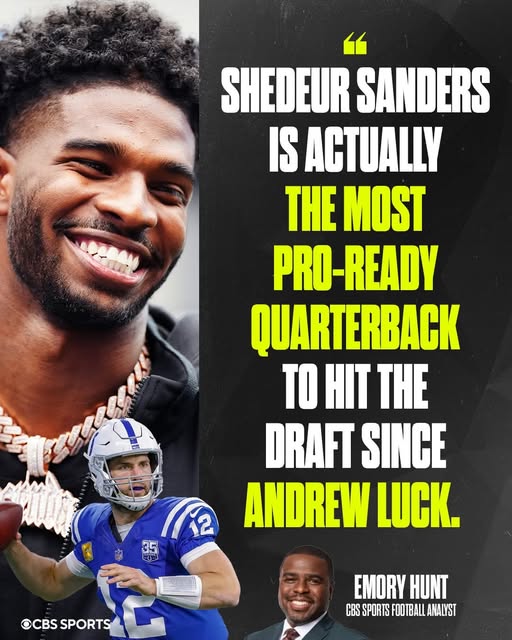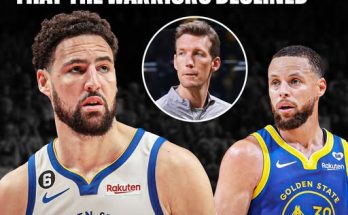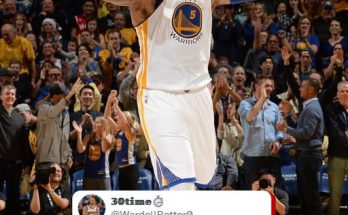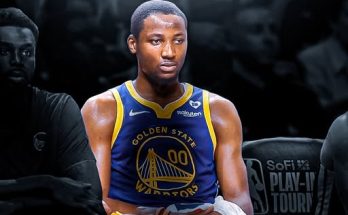April 26, 2012. A night that was, at the time, destined to change the trajectory of a franchise, and one that would etch the name Andrew Luck into NFL history—forever. As Roger Goodell stepped up to the podium inside Radio City Music Hall, fans around the country leaned in, holding their breath not out of suspense, but because they already knew. This wasn’t a draft pick. This was a coronation. “With the first pick in the 2012 NFL Draft, the Indianapolis Colts select Andrew Luck, quarterback, Stanford.” And with that, the future began.
It’s easy now, more than a decade later, to forget just how colossal that moment was—not just for the Colts, but for the entire NFL. Luck wasn’t merely the top prospect in a strong draft class. He was widely considered the best quarterback prospect since Peyton Manning, John Elway, or even perhaps ever. At Stanford, Luck dazzled with a rare combination of intelligence, arm talent, toughness, and poise. He was the prototype. The can’t-miss. The NFL’s next generational quarterback. And in many ways, he lived up to that billing, even as his career ended far earlier than anyone expected.
To understand the gravity of Andrew Luck’s No. 1 overall selection in 2012, you have to rewind the clock to the 2011 NFL season—a chaotic, transitional year for the Indianapolis Colts. Peyton Manning, their cornerstone quarterback for more than a decade, missed the entire season due to a neck injury. With Manning sidelined and an aging roster crumbling around him, the Colts stumbled to a 2-14 record, the worst in the league. The franchise that had once been defined by consistency, playoff appearances, and elite quarterback play found itself lost and broken. But in that darkness, the light was already visible: the “Suck for Luck” campaign had unofficially begun.
Across NFL fanbases, the phrase “Suck for Luck” became a meme, a rallying cry, and a tongue-in-cheek strategy. Teams at the bottom of the standings were accused—sometimes half-jokingly, sometimes not—of tanking to secure the opportunity to draft Luck. That’s how good he was. Even before he declared for the draft, teams were lining up. Experts called him “the most NFL-ready quarterback prospect in decades.” He could make every throw. He had an elite football IQ. He was humble, focused, polished, and competitive. He stayed at Stanford an extra year when he could have been the No. 1 pick in 2011. He was, simply put, the kind of player you build a dynasty around.
When the Colts won the draft lottery, their future was set. What followed was difficult but necessary: the team released Peyton Manning, who would go on to revive his career in Denver. It was a painful divorce from a legend, but in Luck, Indianapolis believed it had found a worthy heir. The fans, still mourning the end of an era, quickly found solace in their new quarterback.
From his very first start, Andrew Luck showed he was built for the moment. In Week 1 of the 2012 season, he threw for over 300 yards against the Chicago Bears. A month later, he led a comeback victory over the Green Bay Packers that instantly turned heads. He broke Cam Newton’s rookie record for most passing yards in a season, finishing the year with 4,374 yards and leading the Colts to an improbable 11-5 record and a playoff berth. The turnaround—from 2-14 to 11-5—was one of the most stunning single-season revivals in NFL history, and Luck was at the center of it all.
What made Andrew Luck special wasn’t just the numbers. It was the way he played. He had the size of a traditional pocket passer, but he could move. He extended plays with his legs, not to run, but to throw. He took hits. Too many, perhaps. And he always popped back up. Teammates respected his toughness. Coaches marveled at his mind. Opponents learned never to count him out. Over his first three seasons, he led the Colts to three straight playoff appearances, including a trip to the AFC Championship Game in 2014. His dramatic comeback win over the Kansas City Chiefs in the 2013 playoffs remains one of the greatest postseason performances of the modern era.
But the physical toll of carrying a flawed roster began to wear on him. By 2015, the hits caught up. A lacerated kidney. Torn cartilage in his ribs. Shoulder injuries. The offensive line couldn’t protect him, and yet Luck never complained. He played through pain. He tried to do it all. The expectations that came with being a No. 1 pick—the face of a franchise, the savior of a city—were heavy. And he bore them with grace.
When he missed the entire 2017 season due to lingering shoulder issues, doubts began to creep in. Would he ever return to form? Would he ever play again? But in 2018, he answered every question with a resounding yes. Under new head coach Frank Reich, with a revamped offensive line led by rookie guard Quenton Nelson, Luck played some of the best football of his career. He threw for 4,593 yards, 39 touchdowns, and led the Colts back to the playoffs. He was named the NFL Comeback Player of the Year. The future looked bright once more.
And then, just like that, it was over.
In August 2019, with the regular season just weeks away, Andrew Luck shocked the sports world by announcing his retirement from football at age 29. The news broke during a preseason game. Fans inside Lucas Oil Stadium booed in disbelief. But Luck, ever the introspective thinker, explained his decision not with bitterness, but with honesty. The cycle of injury, pain, rehab, and more pain had robbed him of the joy he once felt playing football. He was mentally and physically exhausted. He wanted peace. He walked away on his own terms.
His retirement sparked intense debate. Was it too soon? Did the Colts fail him by not protecting him better? Did he fulfill the promise of a No. 1 overall pick? The answers are complicated. In just six seasons of play, Luck made four Pro Bowls, won 53 games, threw for over 23,000 yards, and tossed 171 touchdown passes. He led multiple playoff runs. He carried bad teams. He never had an elite defense. He never had a Hall of Fame receiver. He played through more injuries than most knew. And still, he left the game with his reputation intact and his dignity preserved.
Looking back now, Andrew Luck’s story feels like a parable about talent, pressure, pain, and purpose. He gave everything he had to the game—and then chose a different path. His decision to walk away was rare, especially for a player still in his prime. But it was also brave. He refused to be defined solely by football. He chose health. He chose family. He chose life outside the pocket.
Today, the 2012 draft class is remembered for many things: the Robert Griffin III debate, the rise of Russell Wilson in the third round, and the deep talent at positions like linebacker and offensive line. But at the center of it all remains Andrew Luck, the golden boy with the big smile, the perfect spiral, and the quiet conviction to go his own way.
In an era that often demands more, Luck reminded us that greatness isn’t only measured in rings or records. Sometimes, it’s measured in impact. In resilience. In integrity. He may not have played as long as Manning or Brady. He may not have reached a Super Bowl. But for a moment—for several, really—he was everything a franchise could ever want in a quarterback. And he did it all his way.
So as we look back on that 2012 NFL Draft, let’s not just remember Andrew Luck as the No. 1 overall pick. Let’s remember him as a player who lived up to the hype, played with heart, and walked away still holding his head high. Not every career needs to be long to be legendary.
Andrew Luck’s was—and always will be—unforgettable.



